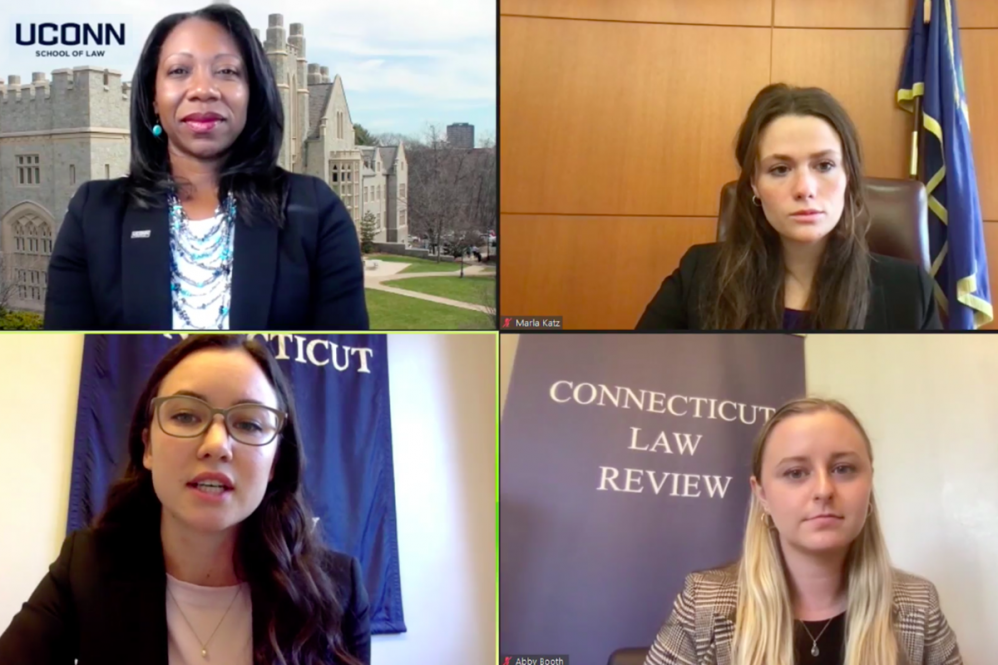Scholars at the Connecticut Law Review’s annual symposium examined how the law failed to protect Black residents of Tulsa, Oklahoma, who were massacred 100 years ago, and how the law has perpetuated racism in America.
The virtual symposium, held on Oct. 22, 2021, was entitled “The Tulsa Race Massacre: What’s Law Got To Do With It?” The keynote speaker was Lolita Buckner Inniss, dean of the University of Colorado Law School, who addressed the psychological effects of the massacre.
“If you are the descendant of a Black person in the U.S. at that time, recognize that you were terrorized by what happened,” she said. “The only way that law can protect people in marginalized groups is for those people in those groups to take hold of the law.”
The massacre occurred in June 2021 when a white mob attacked the predominantly Black neighborhood of Greenwood in Tulsa, looting homes, setting fire to businesses, and murdering hundreds of Black residents. Inniss, whose great-great-grandfather’s business was destroyed, recalled her family’s generational trauma.
After Inniss’ powerful keynote, Assistant Dean Karen DeMeola moderated a question-and-answer session and three panels of experts explored various aspects of the massacre and the law.
Cecil Thomas JD ’06 moderated the first panel, which featured Scott Ellsworth, a professor of Afroamerican and African Studies at the University of Michigan; Kara W. Swanson, a professor at Northeastern University School of Law; and Sara Bronin, a professor at Cornell Law School. They discussed how the law allowed the massacre to be largely ignored and rewritten in history.
The second panel, moderated by UConn Law Professor Kiel Brennan-Marquez, discussed mechanisms in the law that continues to shield racism and white mobs. The panelists were Nicholas Johnson, a professor at Fordham University School of Law; Robert Cottrol, a professor at the George Washington University Law School; Norrinda Hayat, a professor at Rutgers School of Law; and John McMahon, a professor of political science at the State University of New York, Plattsburgh,
The third panel discussed ways law schools can better equip their students to join the legal profession as knowledgeable, antiracist attorneys. The panel was moderated by UConn Law Professor Nadiyah Humber and featured Alena Allen, a professor at the University of Arkansas School of Law; Cheryl Harris, a professor at UCLA School of Law; Kendall Thomas, a professor at Columbia Law School; and Sonia Gibson Rankin, a professor at the University of New Mexico School of Law.
“I thought it was an excellent discussion,” said Joan Bosma JD ’22, who, along with Abby Booth JD ’22, were the symposium editors. “It balanced remembering the massacre and its aftermath with examining how we can be more intentional about incorporating an accurate understanding of U.S. history and addressing inequalities in legal studies going forward.”



